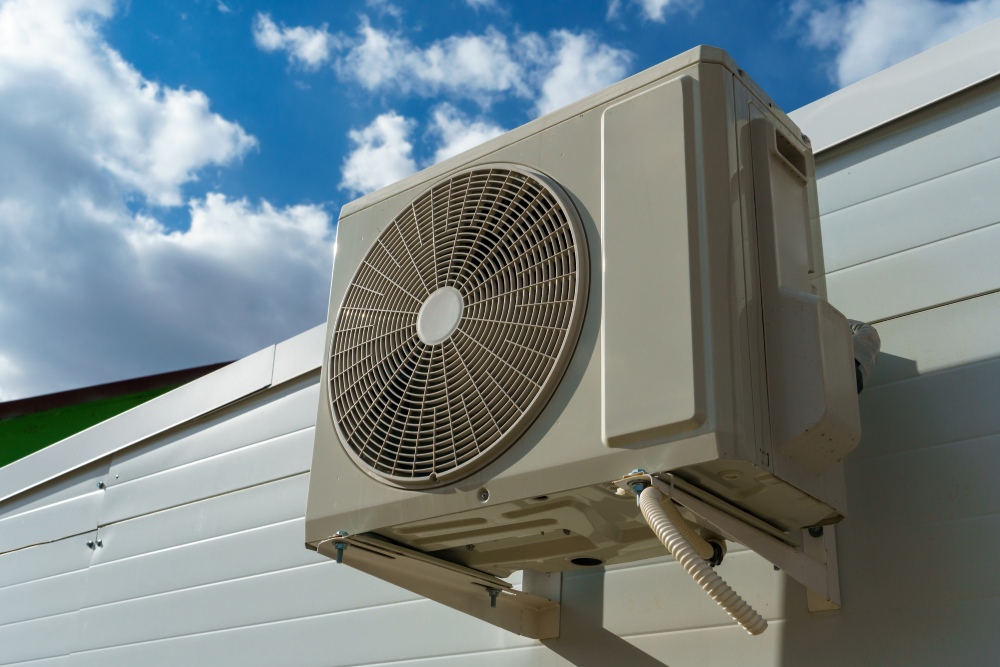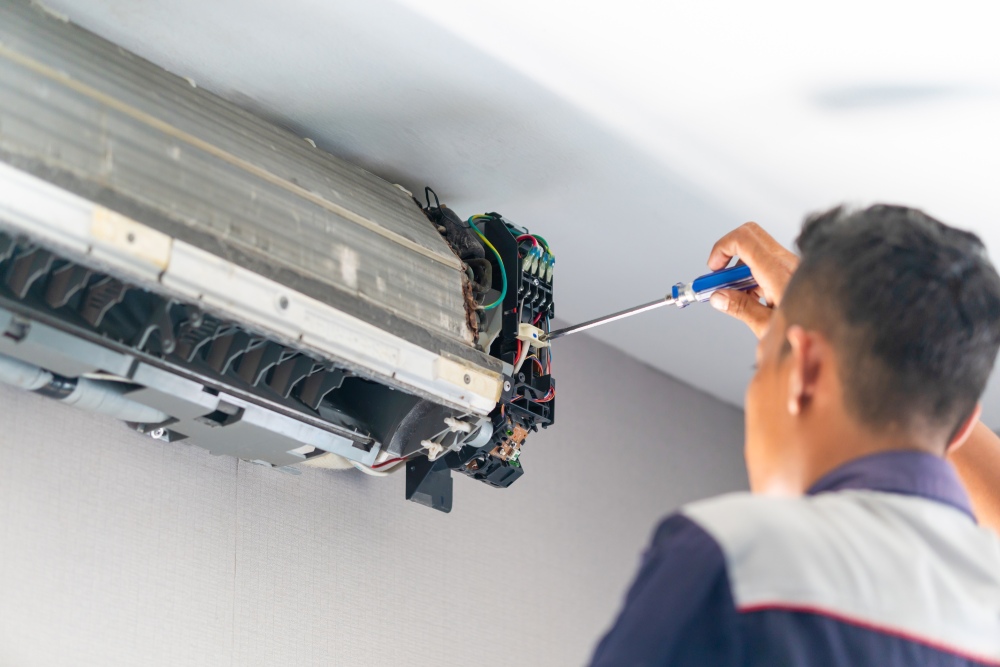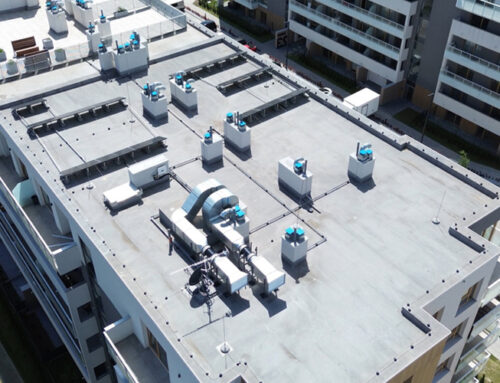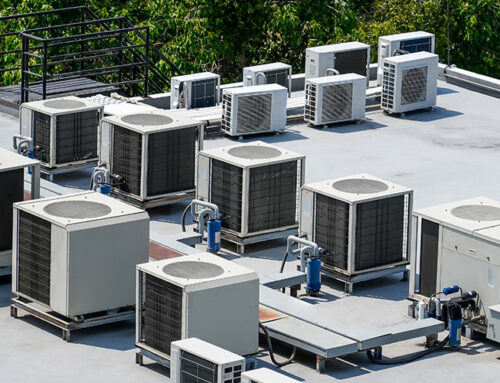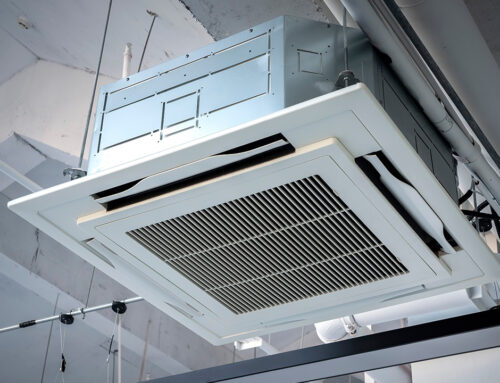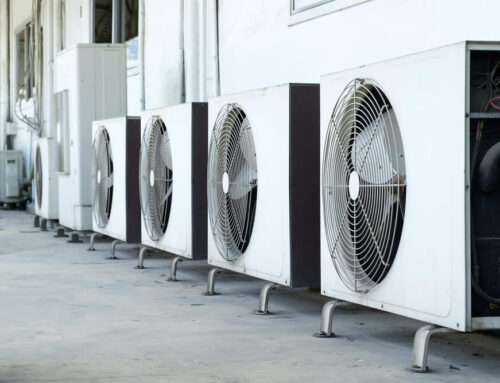Ensuring the longevity and efficiency of your commercial AC system requires a strategic and well-thought-out maintenance schedule. Proper AC maintenance not only helps in avoiding unexpected breakdowns but also enhances the overall reliability and performance of your HVAC management system.
Crafting a routine that covers all critical aspects of AC servicing can seem daunting, but with the right approach and consultation from HVAC professionals, it becomes a manageable task. In this comprehensive guide, we at Chills AC decided to delve into the essential elements of creating a maintenance schedule for your commercial HVAC, what considerations to keep in mind, and who to turn to for expert advice.
Get ready to optimize your AC reliability and keep your commercial spaces comfortable all year round.
Importance of AC Maintenance
Benefits of Regular AC Servicing
Regular AC servicing offers numerous benefits that extend beyond just immediate comfort. First and foremost, it ensures your commercial HVAC system operates at peak efficiency, translating to reduced energy consumption and lower utility bills. Additionally, consistent maintenance helps in identifying potential issues before they escalate into costly repairs or system failures, thereby enhancing AC reliability.
Regular checks and cleanings also improve air quality by removing dust, allergens, and other contaminants, contributing to a healthier work environment. Furthermore, a well-maintained system has a longer lifespan, providing better return on investment. In essence, regular AC servicing is not just about maintaining comfort but also about operational efficiency and long-term savings.
Consequences of Neglect
Neglecting regular AC maintenance can lead to several detrimental outcomes. Over time, dust and debris accumulate within the system, causing it to work harder and consume more energy, which increases operational costs. This strain can lead to frequent breakdowns and costly emergency repairs. Moreover, a poorly maintained system may suffer from reduced efficiency, resulting in inconsistent temperature control and discomfort in your commercial space.
Neglect can also lead to poor air quality, as dirty filters and ducts circulate allergens and pollutants, posing health risks to occupants. In the long run, the lack of proper AC servicing can significantly shorten the lifespan of your HVAC system, necessitating early replacement and further financial burden. Overall, consistent maintenance is essential to avoid these negative consequences and ensure the smooth operation of your commercial AC system.
Impact on AC Reliability
Regular AC maintenance plays a pivotal role in ensuring the reliability of your commercial HVAC system. By addressing minor issues before they escalate, maintenance helps prevent unexpected breakdowns that can disrupt business operations. Routine inspections and tune-ups keep all components functioning optimally, reducing the chances of sudden failures. Consistent servicing also helps maintain the system’s efficiency, ensuring it can handle peak loads without faltering.
Additionally, regular upkeep enhances the predictability of the system’s performance, allowing you to plan for any necessary repairs during non-peak hours, thus minimizing downtime. Reliable AC performance is crucial for maintaining a comfortable and productive environment for employees and clients. In summary, regular maintenance is essential for sustaining the dependability of your AC system, ensuring it performs seamlessly when you need it the most.
Key Segments of a Maintenance Schedule
Daily Checks
Daily checks are the first line of defense in maintaining your commercial AC system. These quick inspections can help identify any immediate issues that might affect system performance. Start by checking the thermostat settings to ensure they are correctly configured for optimal energy use and comfort. Next, observe the airflow from vents to confirm there are no blockages or obstructions hindering air distribution. Inspect the area around the AC unit for any signs of leaks or unusual noises, as these can indicate underlying problems.
Additionally, make sure the power supply to the unit is stable, and there are no visible electrical issues. Performing these daily checks helps in catching small problems early before they develop into major issues, enhancing the overall reliability and efficiency of your HVAC system. Regular monitoring also ensures that the AC system operates smoothly, providing a comfortable environment consistently.
Monthly Inspections
Monthly inspections are crucial for maintaining the efficiency and longevity of your commercial AC system. Start by examining the air filters; dirty filters can significantly reduce airflow and system efficiency, so replace them if they are clogged or worn out. Check the condenser and evaporator coils for dirt and debris buildup, as clean coils are essential for effective heat exchange. Inspect the refrigerant levels to ensure they are within the recommended range; low refrigerant can lead to poor cooling performance and potential system damage.
Also, examine the ductwork for any signs of leaks or damage, as these can cause energy loss and reduced air quality. Testing the thermostat’s accuracy and recalibrating it if necessary is also important for maintaining optimal temperature control. Monthly inspections help in catching and resolving issues early, ensuring your HVAC system operates efficiently and reliably throughout the year.
Annual Servicing
Annual servicing is an essential component of a comprehensive maintenance schedule for your commercial AC system. This thorough check-up involves a detailed inspection and servicing by HVAC professionals. During the annual service, technicians will clean and inspect all major components, including the condenser and evaporator coils, blower motor, and fan blades. They will also check refrigerant levels, test for leaks, and ensure that all electrical connections are secure and functioning correctly.
Calibration of the thermostat and inspection of the ductwork for leaks or blockages are also part of this service. Annual servicing often includes a performance test to ensure the system is operating at peak efficiency. By addressing any wear and tear, potential issues, and optimizing system performance, annual servicing helps in extending the lifespan of your HVAC system. This proactive approach ensures your system remains reliable, energy-efficient, and capable of maintaining a comfortable environment year-round.
Essential Considerations
Manufacturer Guidelines
Adhering to manufacturer guidelines is crucial when creating a maintenance schedule for your commercial AC system. These guidelines provide specific instructions on the frequency and type of maintenance tasks required for optimal performance and longevity. The manufacturer’s recommendations are based on extensive testing and are tailored to the specific components and design of your HVAC system. Ignoring these guidelines can result in voiding warranties, which may leave you unprotected against costly repairs or replacements.
Furthermore, following the prescribed maintenance schedule ensures that all parts of the system are inspected and serviced at appropriate intervals, reducing the risk of breakdowns and inefficiencies. Manufacturer guidelines typically include detailed procedures for cleaning, inspecting, and replacing parts, ensuring comprehensive care for your AC system. By incorporating these guidelines into your maintenance routine, you can maximize AC reliability, energy efficiency, and overall performance, ensuring a comfortable and productive environment in your commercial space.
Local Climate Factors
Local climate factors play a significant role in determining the maintenance needs of your commercial AC system. In regions with hot and humid climates, the AC system may need more frequent servicing to handle the added stress of constant cooling and high moisture levels. Conversely, in cooler climates, the system may not be used as intensively, potentially reducing the frequency of certain maintenance tasks. Additionally, areas prone to dust, pollen, or other airborne particles may require more frequent filter changes and coil cleanings to maintain optimal air quality and system efficiency.
Seasonal changes, such as transitioning from summer to winter, can also impact your maintenance schedule, necessitating checks to ensure the system is prepared for varying demands. By considering local climate factors, you can tailor your maintenance schedule to address specific environmental challenges, thereby enhancing the reliability and performance of your HVAC system throughout the year.
Usage Intensity
Usage intensity is a critical factor in shaping your maintenance schedule for a commercial AC system. High-usage environments, such as large office buildings or industrial facilities, place greater demands on the HVAC system, necessitating more frequent inspections and servicing. Continuous operation in such settings can lead to quicker wear and tear of components, increasing the need for regular upkeep to prevent breakdowns.
On the other hand, systems in low-usage areas, like seasonal businesses or small offices, may require less frequent maintenance but still benefit from scheduled checks to ensure everything runs smoothly when in use. Monitoring the hours of operation, peak usage times, and the load on the system helps in determining appropriate maintenance intervals. By aligning your maintenance schedule with the intensity of usage, you can optimize AC reliability and efficiency, ensuring the system meets the demands of your commercial space consistently and effectively.
Consulting the Right Professionals
Choosing HVAC Management Experts
Selecting the right HVAC management experts is essential for the effective maintenance of your commercial AC system. Start by looking for professionals with proven experience and a solid reputation in the industry. Verify their certifications and licenses to ensure they meet industry standards and regulations. It’s beneficial to choose experts who specialize in commercial HVAC systems, as they will be familiar with the unique demands and complexities of larger systems. Ask for references or case studies to gauge their expertise and customer satisfaction.
Additionally, consider their availability and responsiveness, as prompt service is critical in case of emergency repairs. Transparent pricing and detailed service agreements are other factors to look for, ensuring you know exactly what to expect. By partnering with reliable HVAC management experts, you can ensure that your maintenance schedule is effectively implemented, thereby maximizing the performance, efficiency, and longevity of your commercial AC system.
Questions to Ask Your AC Technician
When consulting an AC technician for your commercial HVAC system, asking the right questions can help ensure you receive the best service. Start by inquiring about their experience with commercial HVAC systems and any specific certifications or training they have undergone. Ask about the typical maintenance tasks they recommend and how often these should be performed based on your system’s usage and local climate conditions.
It’s also important to discuss any signs of wear or potential issues they have noticed during inspections and the recommended solutions. Inquire about their emergency response times and availability for urgent repairs. Additionally, ask for a detailed estimate of maintenance costs and any potential additional charges. Understanding their approach to preventative maintenance and how they plan to keep your system running efficiently can help you make an informed decision. Clear communication with your AC technician ensures that your maintenance schedule is comprehensive and tailored to your specific needs.
Final Steps to Implementation
Creating Your Schedule
Creating a maintenance schedule for your commercial AC system involves a systematic approach to ensure all critical tasks are covered. Start by listing daily, monthly, and annual maintenance activities based on manufacturer guidelines, local climate factors, and usage intensity. Use a calendar or digital tool to map out these tasks, ensuring you allocate specific dates for each activity.
Incorporate buffer periods to handle any unexpected issues that may arise. Assign responsibilities to trained personnel or schedule appointments with your chosen HVAC management experts in advance.
Regularly review and adjust the schedule based on the system’s performance and any feedback from technicians. Ensure that all maintenance activities are documented, including any repairs or parts replacements, to track the system’s history and identify recurring issues. By creating a detailed and organized maintenance schedule, you can enhance AC reliability, optimize performance, and extend the lifespan of your HVAC system, ensuring year-round comfort in your commercial space.
Monitoring and Adjusting
Once your maintenance schedule is in place, ongoing monitoring and adjustments are essential to ensure its effectiveness. Regularly track the performance of your commercial AC system through specific metrics like energy consumption, cooling efficiency, and indoor air quality. Document any deviations from expected performance and investigate the root causes. Gather feedback from maintenance personnel and HVAC technicians after each scheduled service to identify any overlooked issues or areas for improvement.
If your system experiences unexpected breakdowns or inefficiencies, revisit and revise your maintenance schedule to address these gaps. Seasonal changes and varying usage patterns should also prompt adjustments to the schedule. Additionally, stay updated on any new manufacturer guidelines or advancements in HVAC technology that could impact your maintenance practices. By continuously monitoring and fine-tuning your maintenance schedule, you can ensure optimal AC reliability, efficiency, and comfort in your commercial space, adapting to evolving needs and conditions.
Explore Chills AC Services!
Creating and maintaining an effective AC maintenance schedule can be a daunting task, but you don’t have to do it alone. Chills AC offers comprehensive HVAC management services designed to keep your commercial AC system running smoothly and efficiently. Our team of experienced technicians is well-versed in all aspects of AC servicing, from routine maintenance to emergency repairs.
By partnering with Chills AC, you can ensure that your system receives the professional care it needs to operate at peak performance. We provide tailored maintenance plans that consider your specific requirements, local climate factors, and usage intensity. With our reliable services, you can enhance AC reliability, reduce operational costs, and extend the lifespan of your HVAC system.
Explore Chills AC services today to optimize your maintenance schedule and enjoy a comfortable, worry-free commercial environment year-round. Contact us to learn more about how we can support your HVAC needs!

